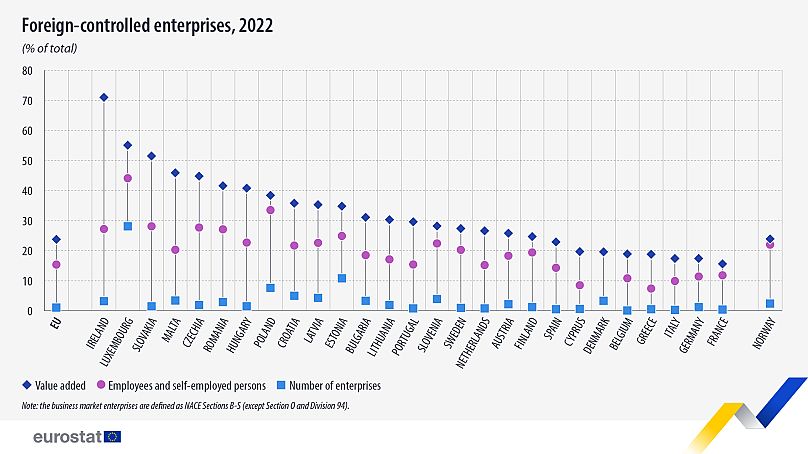Foreign-controlled businesses account for 15% of jobs in the EU with Luxembourg, Poland, and Slovakia having the highest share of employment.
Foreign-controlled companies have a significant impact on the EU economy, even though they make up just 1% of all market producers.
Despite their small numbers, in 2022 foreign-controlled businesses contributed a substantial 24% of the total value added in the EU's business sector.
According to the latest data on Eurostat, foreign-controlled enterprises had the highest value-added contributions in Ireland with 71%, followed by Luxembourg with 55% and Slovakia with 52%.
In contrast, France, Germany, and Italy saw much lower contributions, ranging from 16% to 17%.
Foreign-controlled businesses account for 15% of jobs in the EU, including self-employed workers.
Luxembourg, Poland, and Slovakia had the highest share of employment, with 44%, 34% and 28% respectively, while countries like Greece (7%) and Cyprus (9%) had much lower rates.
What about EU enterprises controlled by Russian entities?**
In 2022, the number of EU enterprises controlled by Russian entities fell by 11% compared with 2021.
Consequently, the number of employees and self-employed persons dropped to 30% and 24% in value-added.
On the other hand, enterprises controlled by Ukrainian institutions grew in 2022.
The number of businesses increased by 8%, with the number of employees rising by 6% and the value-added seeing 12% growth.













